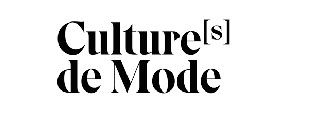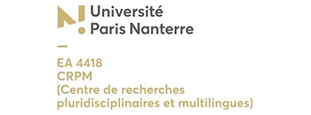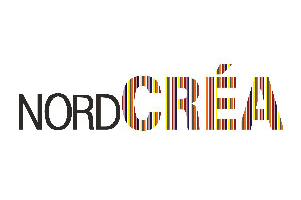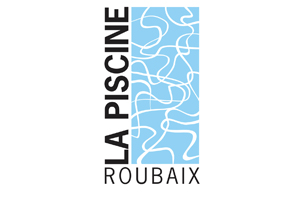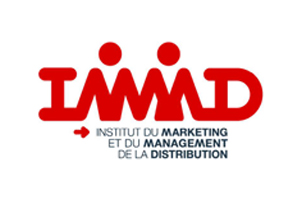Fashion, Costume and Visual Cultures (FCVC2019), is the second international, interdisciplinary annual conference of the FCVC Network.
The conference will take place in Roubaix,
Northern France from the 9-11 July 2019.
About fcvc2019
Fashion, Costume and Visual Cultures (FCVC2019), is the second international, interdisciplinary annual conference of the FCVC Network. The conference will take place in Roubaix, Northern France from the 9-11 July 2019. FCVC2019 is co-organised by Dr Graham H. Roberts (Paris Nanterre University, France) and Dr Sarah Gilligan (Hartlepool College, UK). The conference will be hosted by IMMD (Institut du Marketing et du Management de la Distribution) and local cultural and creative venues in Roubaix.
The FCVC2019 conference will bring established, early career and emerging academics and practitioners together in order to explore key issues, theoretical debates, new methodologies and case studies exploring fashion and costume design and their distinct, yet simultaneously symbiotic relationship within contemporary and historical visual cultures.
Panels will include:
- Film and TV Costuming
- East Asian Clothing Cultures
- Fashion Communication & Change
- Fashioning Masculinities
- Gendered and Sexual Identities
- Music & Style: Prince
- Craft Cultures
- Transnational Fashion Cultures & Design
- Curation, Fashion, Art and Scent
- Cosplay, Fandom and Consumption
- Fashion Promotion, Photography & Consumption
- Practice Based Research
- Material Cultures, Experiences and Policy
- Skin, the Body and Performance Art
- Fashion, Femininity & Consumption
- Luxury, Lifestyle & Identities
- Changing Fashion Cultures & Consumption
- Queering Identities
- Fashion Design, the Body and Consumption
- Dressing Fashionably for Performance
- Diversity, Activism and Digital Media.
- Sustainability, Fashion and the online world.
- Street Style, Graffiti & Hip Hop
- Fashion, Football, Fighting.
- Clothing and Identities / Drawing and Design
- Skin, the Body and Accessories
- Textual Adaptations
Throughout FCVC2019 there will ‘Network and Natter’ sessions on teaching, PhD research, mental health issues, publishing, and practice based research where delegates will be encouraged to discuss ideas and share experiences in a supportive informal environment. There will also be visits to arts and cultural venues, together with opportunities for forming special interest groups and to gain feedback and guidance on your publishing ideas.
conference organisers
Dr Sarah Gilligan
Sarah Gilligan is the Course Tutor for the HE level FDA Design for the Creative Industries programme at Hartlepool College (UK), where she also teaches Art, Design and Contextual Studies on the FE level programmes in the School of Creative and Professional Studies. Sarah is the President of the FCVC network. In 2018, Sarah was awarded the highly competitive and prestigious British Academy Rising Star Engagement Award (BARSEA) for the Fashion, Costume and Visual Cultures Network project. To date, she is the only person working in a UK FE college to have received a BARSEA award. Sarah holds a PhD in Media Arts from Royal Holloway, University of London. Her academic research interests and publications centre on the construction, transformation and performance of gendered identities in contemporary visual culture. She is particularly interested in costume, fashion and the body on and beyond the screen in film, TV drama, advertising and photography. She has published articles in Fashion Theory, JAPCC, and Film, Fashion and Consumption journals, together with chapters in a number of edited book collections and her guide Teaching Women and Film (BFI, 2003). She is currently working on co-guest editing special issues of Clothing Cultures, Critical Studies in Men’s Fashion and Queer Studies in Media and Popular Culture (Intellect), together with new collaborative research on costuming and identities in Spanish cinema with Jacky Collins (Northumbria University, UK) and her own practice based research on tactile transmediality. Sarah is also the Reviews Editor for Film, Fashion and Consumption journal, a member of the Steering Group for Critical Costume and a member of the European Popular Culture Association.
Dr Graham H. Roberts
Graham H. Roberts teaches at Paris Nanterre University, where he is a member of the Centre de Recherches Plurilingues et Multidisciplinaires (CRPM, EA 4418). He is the author of a DPhil on Soviet literature, and more recently of a monograph on consumer culture in post- Soviet Russia (Routledge, 2016). He also teaches marketing and branding at various institutions in France, including ESMOD-ISEM Roubaix, EDHEC and the University of Lille. A member of the European Popular Culture Association, he has published on a broad range of topics, from shopping malls in Kazakhstan to the politics of European football. In 2017 he edited a volume entitled Material Culture in Russia and the USSR: Things, Values, Identities for Bloomsbury Academic. Associate Editor of the journal Film, Fashion and Consumption, and a member of the Editorial Board of the series Fashion, Dress and Visual Cultures (Anthem Press), Roberts recently co-edited with Vicki Karaminas a special issue of Critical Studies in Men’s Fashion devoted to the topic of “Post-Soviet Masculinities” (publication due end 2019).
keynotes

Sophie Kurkdjian
Culture(s) de Mode
Paris, capital of fashion, 1858-1947
Keynote outline
Contributing to a business history of fashion, this research aims to examine how Paris became an internationally recognized fashion capital between the end of the 19th century and the beginning of the 20th century.
In 1868, the British-born designer Charles-Frederick Worth founded a Paris-based trade union, the Chambre syndicale de la couture et de la confection pour dames et fillettes, which became in 1911 the Chambre syndicale de la couture parisienne. The Chambre syndicale protected the interests of the couturiers against foreign competition by providing a framework for the “made-to-measure” label, which was only delivered to designers who were deemed to adhere to the standards. The creation of this trade union constituted the first step of the institutionalization of the Parisian fashion industry, eventually allowing it to become as powerful as it is today.
This paper will show how the turn of the century represented a shift in the Parisian couture industry as it sought to legitimize the leadership and uniqueness of its made-to-measure industry. This process of legitimization lasted until 1945, when specific denominations were set up to clearly and officially define the specificity of “haute couture” in comparison to “confection”.
During this period, Paris developed into a “cluster,” a term Alfred Marshall used in 1890 and Michael Porter theorized one century later. As a territory, it gathered couture houses, novelty stores, department stores, fashion press editorial boards, and confection ateliers. The cluster was structured by the powerful Chambre syndicale de la couture parisienne. Over the course of the 19th century, and the first half of the 20th century, Paris became the place where the actors involved in couture joined together in order to define their specificities and to fight foreign competition.
In order to understand the Chambre’s structure and analyze how the Chambre helped shape Paris as a fashion cluster, this paper will rely on the archives of the Chambre syndicale de la couture parisienne which have, until now, been largely kept secret.
Biography
In 2013, Sophie Kurkdjian got a PhD in History on the history of fashion press at the beginning of the XXth century. Between 2011 and 2014, she was for three years a Visiting Fellow at the Bibliothèque Nationale de France, in Paris, where she worked on the fashion periodicals collections. Since 2012, she has been a Research Fellow at the Institut d'Histoire du temps present (IHTP) at the CNRS, in Paris, where she co-directs a Research Seminar on History and Fashion. In 2017, she co-organized the exhibition “Mode & Femmes, 14-18”at the Forney Library in Paris. In 2019, this exhibition will be presented in New York at the Bard Graduate Center Gallery. In 2018, she created the French fashion research network, Culture(s) de Mode, in collaboration with the Ministère de la Culture. This network gathers researchers, curators, archivists, designers and students who are interested in fashion. Her main lines of research focus on fashion media history, on mediation in the fashion industry and on circulations and exchanges in fashion. She is member of the editorial board of two scientific reviews specialized in fashion studies Apparence(s), Histoire et culture du paraître (dir. Isabelle Paresys) and Modes pratiques (dir. Manuel Charpy). She also teaches different courses in communication and in marketing for undergraduates, as well as in the MAs in Fashion in French and foreign universities.

Nick Rees Roberts
Université Paris 3-Sorbonne Nouvelle
Designer fashion culture: rethinking creativity after the luxury brand
Keynote outline
The starting point for this keynote is located in the third section of my book, Fashion Film: Art and Advertising in the Digital Age, in which I examine screen representations of the fashion designer in both cinema and digital media. In my current project, Designer Fashion Culture, I analyse the reconfigured role of the designer in the twenty-first century as a “creative director”—as, in short, not simply a designer, but also a communicator, celebrity, and curator. Focusing on image, influence and innovation, the project articulates a theoretical critique of fashion design in the corporate age of luxury branding with its limited scope for innovation.
Popular journalistic accounts of the fashion industry at the turn of the century, at the dawn of the age of the “new” luxury branding, tend to emphasize the dehumanization of design by the corporate machine, focusing on the high-profile burn-outs and breakdowns of successive “star” designers from John Galliano to Raf Simons. In this keynote I envisage the shapes and forms of contemporary fashion from within the cultural economy of the twenty-first century, especially the impact of digital media technologies on the processes and practices of design and image. Social-media friendly designers such as Olivier Rousteing at the house of Balmain, for example, approach seasonal collections through a mood-board approach, which consists of cutting and pasting images from previous collections onto new design for maximum continuity. This also raises the question of the training and education of today’s young designers, who are expected to be as proficient in image and communications as they are in art and design.
Clearly, the critical parameters have shifted so academic inquiry requires a revised set of interdisciplinary research methods to approach the work of contemporary fashion designers beyond the hitherto discrete frameworks of aesthetics, sociology, or marketing. Going beyond the business of fashion, or the industry’s predominant focus on promotion, in this keynote I seek to address the broader socio-cultural contexts for fashion design by looking at its processes through the theoretical lens of cultural studies. Rather than approaching the work of a designer from the idealist perspective of art history, this project subjects the creative director to a materialist critical practice of creative economy, which emphasizes the interplay of commerce, power, history, and material culture on a revised definition of creative authorship. More broadly, my aim is to redefine the function of the designer in the wake of both the luxury economy and digital media by suggesting that the current taxonomies or discursive language for imagining design are outmoded. The standard terms used to describe fashion design as critical, experimental, conceptual, avant-garde, luxury, high, mainstream, mass and so forth are, I argue, past their sell-by date and out-of-touch with the more dynamic, post-digital nature of the intersectional design, media, and image practices of the new millennium. Rethinking the designer through the interdisciplinary lenses of visual communications, celebrity culture, digital media, and technological innovation, therefore allows for a more joined-up method for thinking through fashion.
Biography
Nick Rees-Roberts is Professor of Media and Cultural Studies at the Sorbonne Nouvelle University—Paris 3, where he is the director of the Masters programme in Fashion and Creative Industries in the Faculty of Arts and Media. Nick first studied Modern Languages at Keble College, Oxford, before leaving the UK to live in France, settling first in Brittany, where he studied and taught at the University of Brest, and then in Paris, where he worked at a number of institutions (Paris-Sorbonne, Sorbonne Nouvelle, Paris-Dauphine, Nancy 2) teaching English, Film and Media Studies. He also researched for a PhD in Media and Cultural Studies at the University of Sussex in the UK, where he wrote a dissertation on gender, sexuality and representation in contemporary France. He returned to the UK in 2007 to take up a lectureship in French Film Studies at the University of Bristol, where he remained until 2016. Nick’s research focuses on contemporary media-culture in the intersecting fields of fashion studies, film studies, and gender and sexuality studies. He is the author of French Queer Cinema (2008/2014), co-author with Maxime Cervulle of Homo exoticus: race, classe et critique queer(2010), and co-editor with Darren Waldron of Alain Delon: Style, Stardom and Masculinity(2015). His latest book is Fashion Film: Art and Advertising in the Digital Age, published in 2018 by Bloomsbury Visual Arts. He is now writing a book about contemporary fashion and the luxury economy, Designer Fashion Culture: Creativity in the Age of the Luxury Brand, and is co-editing, again with Darren Waldron, a volume on French film star Isabelle Huppert for Bloomsbury Academic, to be published in 2020.
Keynote roundtable: Representations of fashion: yesterday, today, tomorrow
Roubaix Town Hall
Speakers: Kristell Blache-Comte (EHESS, Paris), Pamela Church Gibson (London College of Fashion), Laurent Cotta (Palais Galliera, Paris), Marlène Van de Casteele (Paris Galliera, Paris), Alice Morin (Université Paris 3-Sorbonne Nouvelle).
Keynote roundtable: Curating fashion exhibitions
La Piscine
Speakers: Anne-Claire Laronde (Cité de la Dentelle et de la Mode, Calais), Eve Demoen (Modemuseum, Hasslet, Belgium), Sylvette Gaudichon (La Piscine, Roubaix), Georgina Ripley (National Museums Scotland, Edinburgh), Scott Schiavone (Fan Museum, Greenwich).
Keynote roundtable with regional designers
Maisons de Mode, Le Vestiaire
Speakers: Françoise André-Gourssol (Aux Corps Anonymes), Marine Bigo (Minirine), Cyrille Grouselle (Maisons de Mode), Amandine Labbé (U-Exist), Elisabeth Jayot (Fragments Garments / Paris 1-Sorbonne Panthéon University).
register
Delegate registration for FCVC2019 is available via bank transfer or via card payment (using PayPal).
Deadline for all registration payments is: Monday 10th June 2019.
The delegate fee will include conference materials, refreshments, lunches and an evening reception at La Piscine. Please be aware that the draft programme will be subject to change and only delegates who have paid their delegate fee by Monday 10th June 2019 will be guaranteed to be included in the final programme and booklet of abstracts.
PAY BY BANK TRANSFER
You can use mobile, online, or telephone banking for this payment option.
EARLY BIRD DEADLINE: Sunday 2nd June 2019.
Early bird - full (waged): £180 (GBP)
Early bird - discount (PGR / independent) £135 (GBP)
Payments after Sunday 2nd June should be paid at the full standard rate.
Standard rate - full (waged): £220 (GBP)
Standard rate - discount (PGR / independent): £175 GBP
Account Name: FCVC (Fashion, costume and visual cultures)
IBAN: GB52HBUK40436230272302
Swift: HBUKGB4B
Account: 302 723 02
Sort Code: 40-43-62
Branch: Sunderland, The Bridges.
Market Sq, Sunderland, SR1 3LE
Please include your FCVC delegate reference number, highlighted in yellow at the top right of your official acceptance letter. If paying from outside of the UK, your bank may charge you an additional processing / currency fee.
PAY VIA PAYPAL
You can pay by credit or debit card, or with a PayPal account via the link below.
Due to processing fees, delegates paying via PayPal will be charged:
Full rate (waged): £180 (GBP)
Discount rate (PGR / independent): £135 (GBP)
Please note: these rates will be available throughout the registration period (until 10th June).
roubaix & the lille
mÉtropole
FCVC2019 will take place in Roubaix, an industrial city in the Northern France, that forms part of the wider Lille Métropole urban area.
Situated near to the Belgian border, Roubaix was traditionally a major centre for textile production, particularly woolen goods. Roubaix is currently in the midst of a period of creative, cultural and social regeneration, breathing new life into the city. From innovative and technical textile production, to hubs of new fashion designers, Roubaix is once again placing textiles and clothing at the centre of its identity. The internationally acclaimed museum of art and industry La Piscine - offers a diverse collection within the stunning the Art Deco former swimming baths – and since reopening in the Autumn of 2018 with a €9 million extension and new gallery spaces has attracted unprecedented visitor numbers.
The Lille Métropole (of which Roubaix is part), has been designated to be a World Design Capital in 2020. As the capital of Hauts-de-France, the nearby city of Lille offers a diverse range of bars, restaurants, shopping, cultural venues and accommodation. Delegates can travel by Eurostar train to Lille, making connections from London and Brussels accessible in under two hours.
Making the most of both FCVC2019 & your time in France. With excellent public transport links between Roubaix and Lille, we would encourage FCVC2019 delegates who wish to enjoy a range of social and tourist activities whilst they are in France, to book accommodation in Lille and travel to and from FCVC2019 on the light rail (metro VAL) or the tram system.
For those delegates who want to attend the conference and indulge in the opportunity to rest and relax in their hotel in the evening, then you may wish to stay in Roubaix within easy walking distance of our conference and keynote venues.
Wherever you choose to stay, the FCVC2019 team encourages delegates to be friendly and supportive of one another. Don’t worry if you don’t know anyone at the conference, we will strive to make sure that delegates get to know each other, look after one another, travel safely together and that everyone makes the most of their time at and beyond FCVC2019. We want for FCVC2019 to be engaging, interesting and good fun.
For further information on places to visit, travel, shopping and restaurants:
Roubaix Tourism https://www.roubaixtourisme.com/en/home/
Lille Tourism https://en.lilletourism.com
For regular conference updates & further information about Roubaix, Lille and the surrounding area, join our FCVC Facebook group at:https://www.facebook.com/groups/FCVCnetwork/
You can also follow & contribute to the conference conversations on Twitter using the hashtag: #FCVC2019
Hotels Roubaix For delegates who wish to stay near the conference venue in Roubaix. Hotels include, but are not limited to:
B&B Hotel Lille Roubaix Campus Gare Rue de l'Alma, Place de la Gare - ZAC du quartier de la Gare, 59100 Roubaix A budget 2-star hotel with online rates from €38.40 per room, per night (excluding breakfast). https://www.hotel-bb.com/en/hotels/lille-roubaix-centre-gare.htm? arrivalDate=08%2F07%2F2019&departureDate=12%2F07%2F2019&selectPersonNumber=2#tarifs
Hotel Mercure Lille Roubaix Grand Hotel 22 Av. Jean Lebas, 59100 Roubaix A centrally located 4-star hotel from the Accor Hotels chain, with online rates from €90,25 per room, per night (excluding breakfast). https://www.accorhotels.com/gb/hotel-7951-mercure-lille-roubaix-grand-hotel/index.shtml
Lille For delegates who wish to stay in nearby Lille and take advantage of the extensive cultural, social and culinary options available and travel to FCVC2019 by tram or light rail (35 minutes approx’), there are a wide range of independent and chain hotels, together withapartments available at various price points.
For the best deals, delegates are advised to search online through sites such as: Booking.com, Kayak, Trivago and Air BNB, or book directly on the hotel’s website.
GETTING TO FCVC2019
International connections
The Lille Metropolitan area, which includes Lille, Roubaix and Tourcoing, is very conveniently placed between London, Paris and Brussels. To get to Lille, delegates coming from the south of England may find Eurostar the most convenient option; the journey takes around 1h 20 from St Pancras, and there are several trains a day (see https://www.eurostar.com/uk-en).
For delegates flying into Paris, there is a regular and direct TGV link from Roissy Charles de Gaulle airport, which takes around 55 minutes. Trains can be booked on line, here: https://en.oui.sncf/en/deals/train-fares
Delegates may also wish to consider flights into Brussels, as this may be a cheaper option. Lille can be reached very quickly and easily from Brussels airport (Zaventem), either by train, or coach. To book train connections (a journey of between two and three hours, depending on the time of day you travel), you can use this site: https://www.thetrainline.com. If you prefer to travel by coach (a journey of just over two hours), you can book your journey here: https://www.ouibus.com.
Travelling to Roubaix from Lille

The easiest and quickest way to reach the FCVC2019 conference in Roubaix is to take the metro from Lille Flandres station (close to the centre of Lille, located underneath the city’s main railway station - NOT the Eurostar station, which is called Lille Europe). You will need to buy a ticket at one of the free-standing grey and red ticket machines in the central hall under the station. Look for the machines that say “Tickets / Rechargement” (Fig. 1).
The cheapest solution is to buy a ticket, and to charge six journeys on it. Each one-way journey
costs 1.65€, and can be used for unlimited travel for one hour.
The ticket machines take either coins or credit card (including Contact-less). To buy your ticket,
simply follow these steps:
i) Touch the screen;
ii) To switch to English, touch the Union Jack icon at the top left of the screen;
iii) on the next screen, press the left-hand icon, the one that says “Purchase a card or a ticket”
iv) on the next screen, press the left-hand icon that says “Ticket”;
v) on the following screen, click on the option “Trajet unitaire”, which can usually be found at the
top left. You will then be asked to specify the number of journeys you wish to charge on to your
ticket, by using the “+” and “-” buttons. Once you have the required amount simply click “Confirm
Quantity”;
vi) touch the “Pay” button on the screen, and then follow the instructions.
Once you have your ticket, you should then head through the electronic barriers, swiping your
ticket as shown in Fig. 2, towards the red metro line (line 2), and follow the steps down in the
direction of “CH Dron”.

The metro journey to Roubaix takes a good half an hour. The station you need for Roubaix Town Hall, where our conference is scheduled to start, is “Roubaix Grand Place”. The station for the University’s IMMD building, in which most of the conference will take place, is two stops further on, and is “Gare Jean Lebas Roubaix”. When you reach the top of the elevator, simply walk in the direction AWAY from the roundabout, up the Rue de l’Alma. The IMMD is about 150 yards ahead on the same side of the road. It’s the last building on the left before the busy road junction, on the corner of la Rue de l’Alma and the l’Avenue des Nations Unies (see Fig. 3).
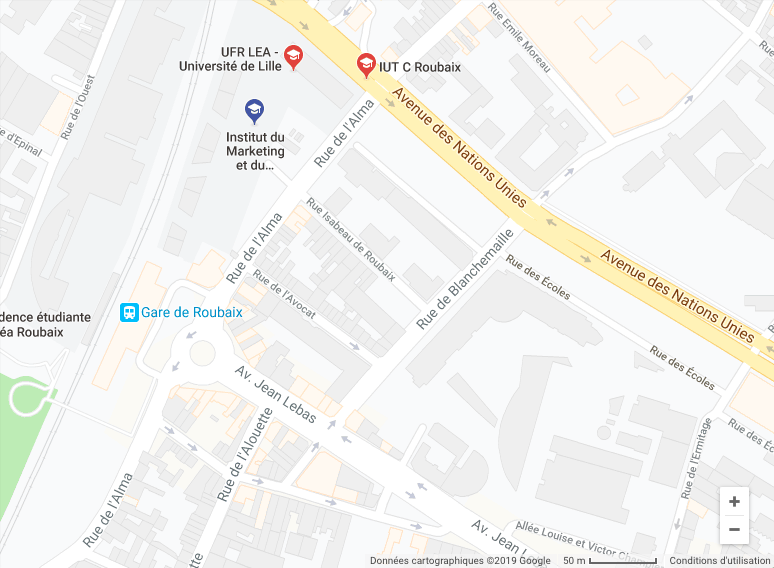
Figure 4, below is a map of the Lille metro system, which can also be accessed here: https:// www.ilevia.fr/cms/institutionnel/wp-content/uploads/sites/4/2016/08/metro-lille.png


